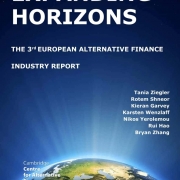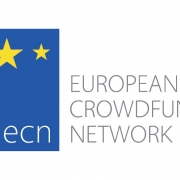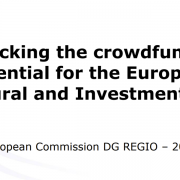Ronald Kleverlaan | Insights on European FinTech Marketplace
Ronald Kleverlaan is a well known thought leader in the European Fintech sector. He is Director of the European Centre for Alternative Finance (ECAF) at Utrecht University in the Netherlands – a joint initiative of the University Utrecht School of Economics, CrowdfundingHub, and the Sustainable Finance Lab. ECAF is an academic research group with a multi-disciplinary approach of engaging researchers from finance, entrepreneurship, legal and policy issues. ECAF seeks to provide insight into the various verticals of alternative finance to assist policymakers in crafting new rules pertaining to innovative finance.
Next week, in partnership with Oxford University, ECAF will be hosting their European Alternative Finance Research Conference. The agenda includes the hot topics of online capital formation including crowdfunding, peer to peer lending and initial coin offerings (ICOs).
The EU is in the midst of a push to level the regulatory playing field for platforms providing investment crowdfunding with new rules expected in the coming months. In advance of the ECAF conference, we spoke to Kleverlaan to gain insight into his expectations regarding proposed rules and his expectations for the European Fintech marketplace.
How is the Alternative Finance evolving in EU?
Ronald: The alternative finance market in Europe is currently preparing for the next growth phase with EU wide regulations, launch of new initiatives backed by large institutional funders and public support for cross-border investments.
Alternative finance providers have become more professional and are respected by other stakeholders in the financing industry, such as institutional investors who are providing the funding. This was normal in the UK for a couple of years and is reaching the rest of Europe now.
Previously alternative finance was used in startups or specific higher risk industries and in several countries 10-20% of that market is already funded through alternative finance providers. We now see a shift to larger funding rounds and stable, mature companies who find their way to raise funding through alternative finance. The biggest hurdle for growth in this phase is lack of knowledge at financial advisors an accountants about these need forms of finance.
Nevertheless there are still big differences in European countries. The alternative finance industry in western European and Nordic countries is growing rapidly, but in eastern and southern European countries it is still underdeveloped at this stage. For this reason the European Commission is investing a lot in capacity building and education in these region by programs such as Altfinator.
Is Brexit impacting the development of Fintech? Is the Commission more inclined to move quicker in light of Brexit?
Ronald: Brexit is having impact on all areas of the Commission, but also without Brexit it would have taken place.
Perhaps it is moving a bit quicker now, because there is a need to position the EU stronger as financial centre post-Brexit. This would otherwise also happened and the UK would most likely have been one of the strongest supporters of these pan-European rules, to open the market for the large and successful UK alternative finance providers.
Now, new providers from mainland Europe will have more to change and time to grow.
Is financial inclusion and alternative finance part of the social mission in Europe?
Ronald: Financial inclusion is not high on the agenda in discussions on new regulation or the development of the Capital Market Union. But in certain areas we see interesting experiments with (social) impact bonds and micro-finance, mostly funded by national or European governmental funds. The EIB/EIF is spending a lot of energy and budget in supporting these new initiatives.
What about block chain development in financial services?
Ronald: Blockchain development is still a very big area for research and in innovation in the financial industry.
In real-world examples and for providing funding to companies, it is only (partly) used in ICOs. We see also interesting developments around tokenization of ownership of different types of assets, such as real-estate and fine art on the blockchain. This is still at an immature stage at this time, but will have a massive impact on the industry by reducing administrative costs and making these investments accessible for a wider group of (retail) investors.
Your forthcoming event in partnership with Oxford will take place next month. What do you expect will be the main topics of discussion?
Ronald: One important topic will be the challenges and the potential for pan-European versus national regulation of alternative finance. With speakers from the European Commission who will focus on the new pan-European Crowdfunding / P2P regulation and regulations for ICOs we will discuss the harmonization of these rules.
This will be challenged by the representative from the main P2P-association from the UK (P2PFA) who will discuss the new regulatory framework of the FCA (Financial Conduct Authority).
Other interesting topics will be state-of-the-art discussions on crowdfunding for sustainability, global overview of risks and returns in peer-to-peer lending and a proposal for governance of ICO projects.
With speakers from all parts of Europe, US and India and the UN, we will discuss a wide area of topics.









